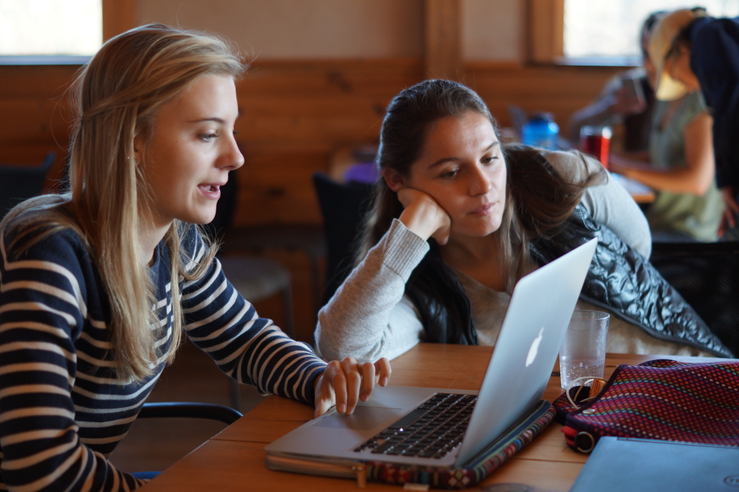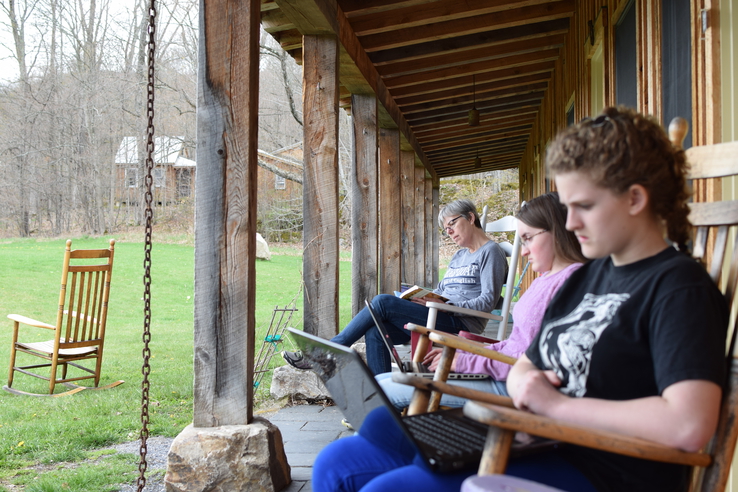
Blog Post 9: What Schools Should Understand About “What’s the Story?”
I have never been a part of a class that functioned in the way “What’s the Story?” does. I have never been asked to take charge of my learning on the scale that I am being asked to in this course. Throughout middle school I completed book talks and science presentations, each based around something that interested me. I was in charge of learning more about the author’s purpose for writing the novel or discovering how a physics concept is applicable to the Average Joe. However, these were small projects born of a lesson plan the teacher had created; though I was able to choose a topic, the topics themselves were limited to their connection to the idea or subject we were learning in class already.
“What’s the Story?” is different. It has a curriculum, like any other class I would take at my high school, but it is teaches skills rather than content. Instead of being taught something that interests me, I am forced to find something I want to learn about on my own. Of course, the content is also a major part of this course – in order to even begin to find the story my group wants to make a documentary about, we have to have both basic and advanced knowledge about what we’re talking and learning about – but the process of finding that information has already taught me something that even other school research projects have not taught me: You have to care.
For some people, it’s easy to care about school, if only because one’s grade depends on completing a homework assignment or studying information to pass a test. In “What’s the Story?” grading is almost an afterthought. The priority is to find, create, and tell a story that someone will care about. To do that, you first have to care enough to think about it, want to do something about it, and then actually do it. This process teaches you to identify issues, create compelling stories, collaborate with a team, communicate with others, and become a more thoughtful and observant person.
These are not skills that cease to be important once I leave high school, or even college. These are skills professional adults work to improve and develop, skills that are necessary and vital to function in society. It doesn’t matter if you have great ideas if you can’t tell other people what they are, just like it doesn’t matter if you believe something needs to change if you don’t try to do something about it. There are so many problems in our society alone that need solutions, and there is no room for someone to complain about them yet be unwilling to make a difference. And I’m not saying that this project is the be-all and end-all of problem solving because, let’s face it, though the culminating documentaries we create in our groups are likely to reach a significant number of people, we are not necessarily going to change the world.
But the skills we learn while attempting to do so are the ones that may one day make it possible.
 Previous Post
Previous Post Next Post
Next Post







“And I’m not saying that this project is the be-all and end-all of problem solving because, let’s face it, though the culminating documentaries we create in our groups are likely to reach a significant number of people, we are not necessarily going to change the world. ”
We can only change the world one thought, one action, one person at a time. You talked about how this class taught “you to identify issues, create compelling stories, collaborate with a team, communicate with others, and become a more thoughtful and observant person.” It seems to me that you are on your way to changing the world. Just know that the road is hard, but please… don’t give up. There is no instant satisfaction, but there are many things that can improve. Keep up the good work.
Absolutely agree with everything Robin said!
Just reading this post has made me inspired to reach out to a teacher and share your words. That teacher might do something with her curriculum that will help her students. And they may do something amazing that will have a positive impact. Point being: YOU ARE ALREADY CHANGING THE WORLD! The scale is not important, it’s the depth and the impact. By caring you help others care. Please keep it up!